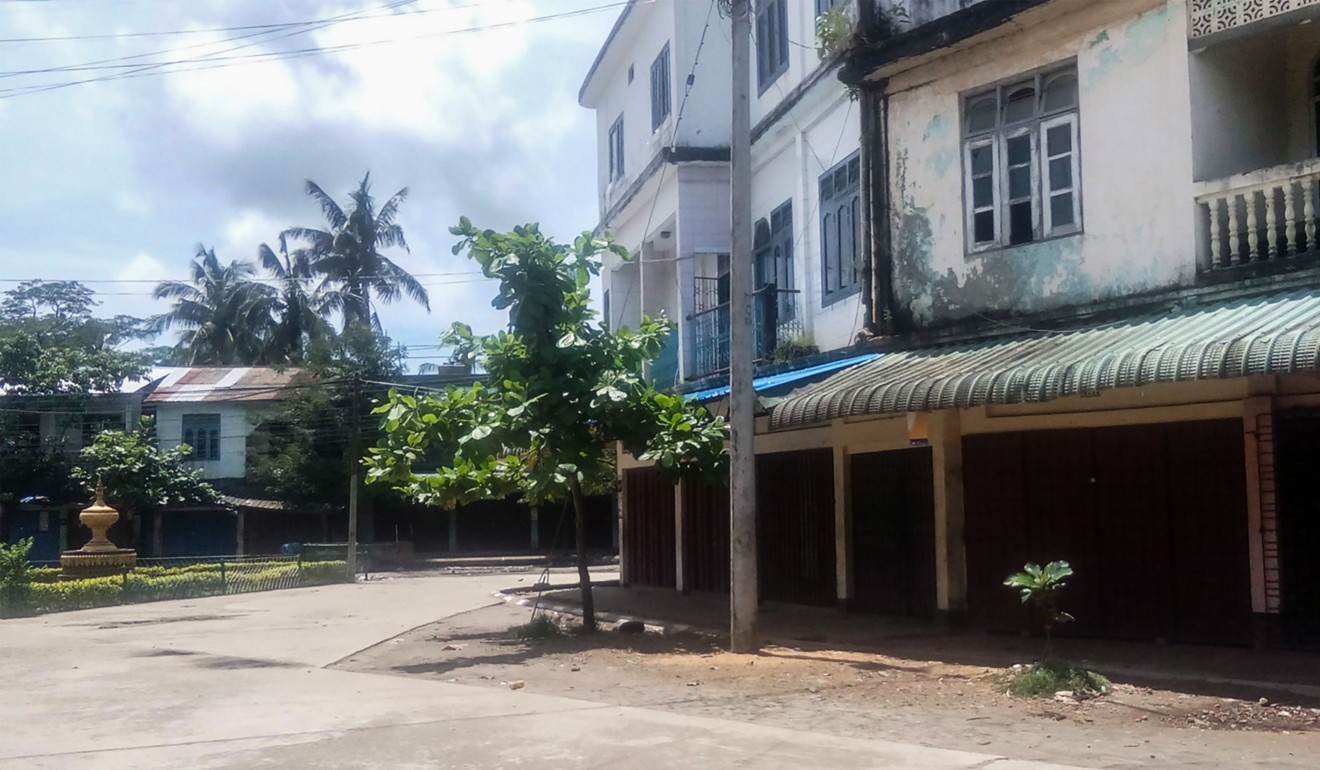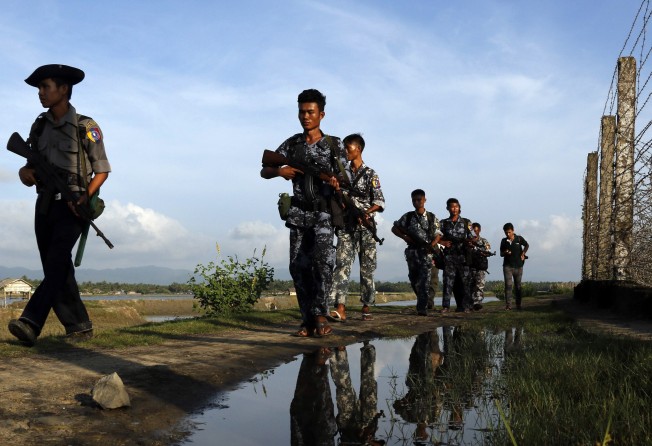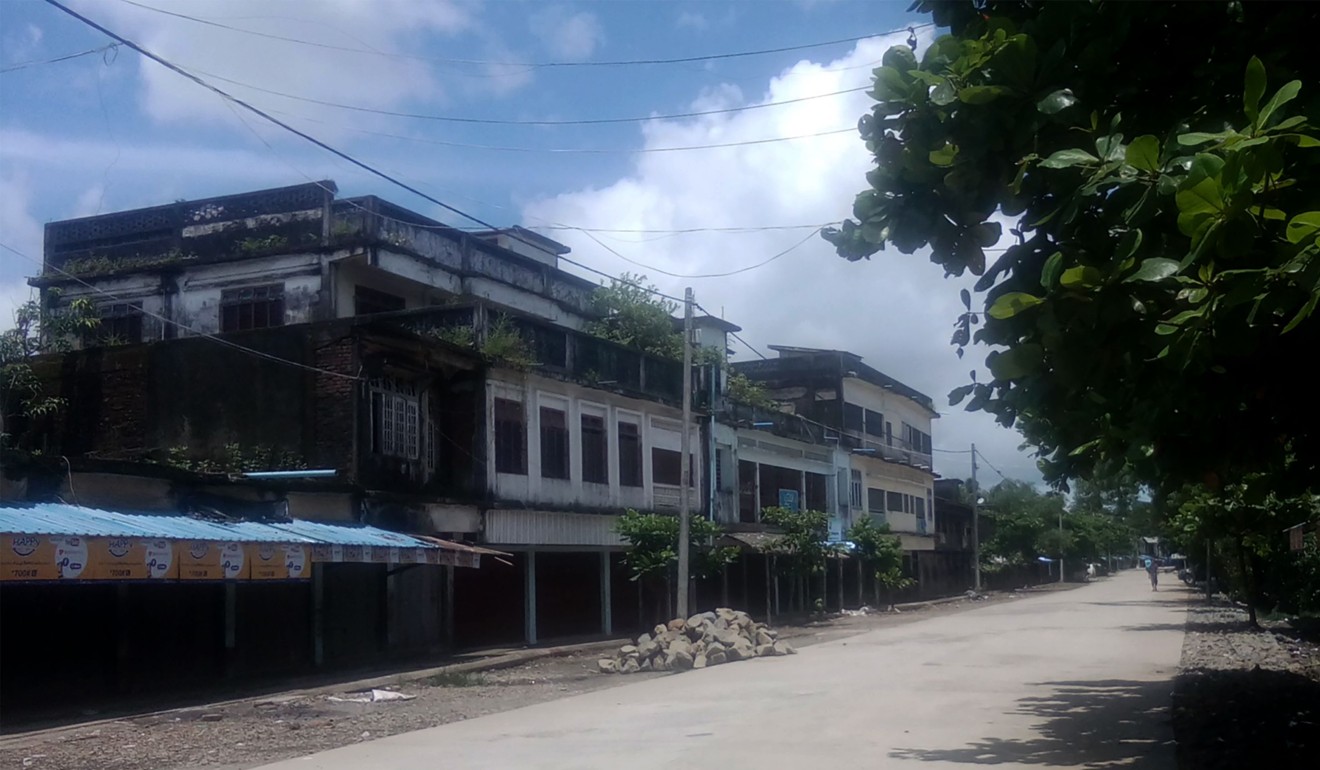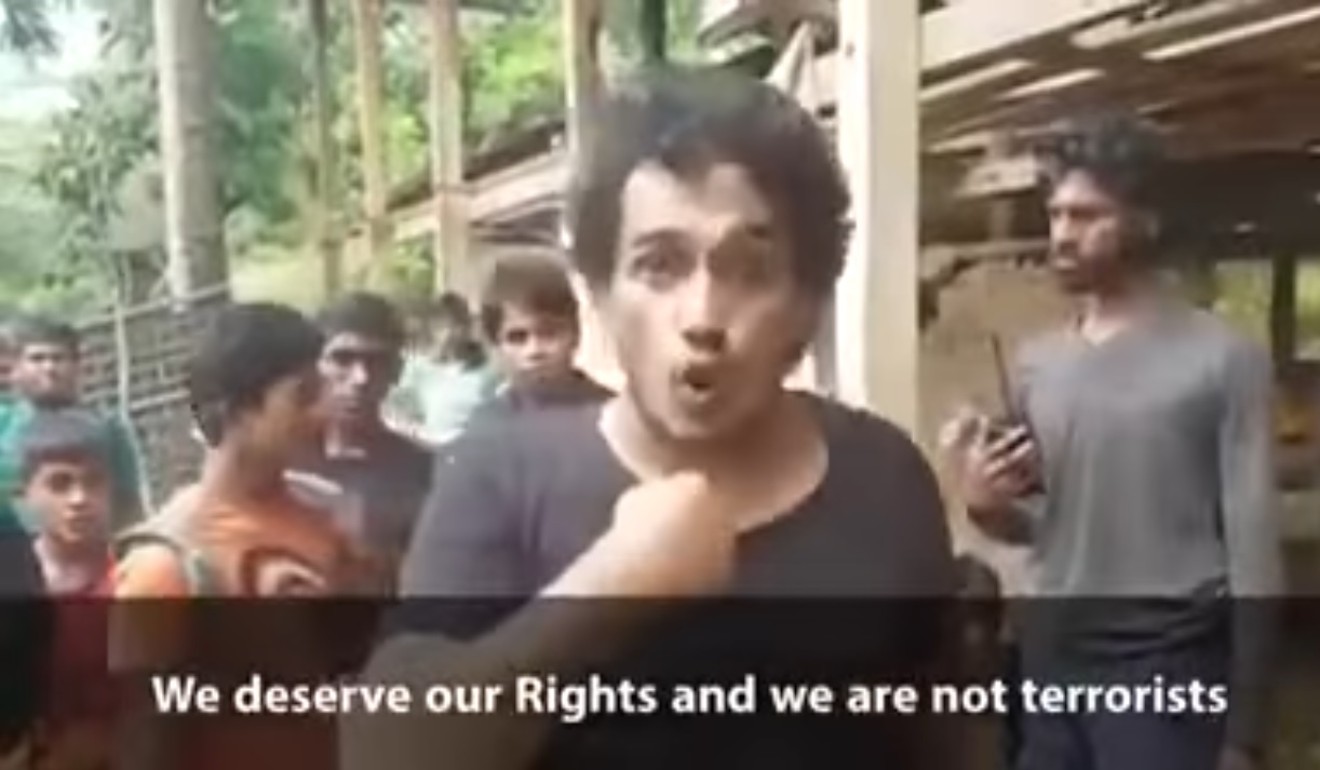
At least 71 dead in coordinated attacks by Muslim militants on Myanmar police stations

At least 71 people have been killed in the latest fighting between Rohingya militants and Myanmar security forces in the country’s Rakhine state, the office of de facto leader Aung San Suu Kyi said Friday.
In an updated toll, the state counsellor’s office said 12 security officials had been killed and that “59 dead bodies of extremist Bengali terrorists” – the phrase Myanmar authorities use to describe Rohingya militants – had been found.
The fighting – still going on in some areas – marked a major escalation in a simmering conflict in the northwestern state since last October, when similar attacks prompted a big military sweep beset by allegations of serious rights abuses.

The Arakan Rohingya Salvation Army (ARSA), a group previously known as Harakah al-Yaqin, or “Faith Movement”, which instigated the October attacks, claimed responsibility for the early morning offensive, and warned of more attacks.
Security in the state deteriorated early this month when the government began a new “clearance operation” in a remote mountain area.
“The extremist Bengali insurgents attacked a police station in Maungdaw region in northern Rakhine state with a handmade bomb explosive and held coordinated attacks on several police posts at 1am,” a news team affiliated with the office of national leader Aung San Suu Kyi said in a statement, using the derogatory term “Bengali” to refer to Rohingya.
The Rohingya are denied citizenship and are seen by many in Myanmar as illegal immigrants from Bangladesh.
The military counteroffensive in October resulted in some 87,000 Rohingya fleeing to Bangladesh, where they joined many others who have fled from Myanmar over the past two decades or more.
The government news team listed 24 police posts that had come under attack, adding police and the military were continuing to fight the insurgents.
It said about 150 Rohingya attackers had attempted to break into a military base, prompting the army to fight back.
“They were planning to attack because we have found their camps, the caves and the bombs and masks inside the caves,” said Myanmar police headquarters spokesman Colonel Myo Thu Soe, referring to recent discoveries of what the government described as militant training camps.

Military sources in Rakhine State told Reuters they estimated the number of insurgents in the offensive was five-times the October attacks, with about 1,000 fighters said to have taken part.
The ARSA group was formed by Rohingya living in Saudi Arabia after a bout of serious communal violence in 2012, according to the International Crisis Group.
Its leader, Ata Ullah, has said hundreds of young Rohingya men have joined the group, which claims to be waging a legitimate defence against the army and for human rights.
“We have been taking our defensive actions against the Burmese marauding forces in more than 25 different places across the region. More soon!,” the group in a statement posted on a Twitter account believed to be linked to it.

Friday’s attack encompassed both Maungdaw and Buthidaung townships in the remote northern part of the state – a much wider area compared with October.
Over the last several months the government has accused the insurgents of instigating a campaign of terror against village chiefs and killing government informers, disrupting government information networks.
“The insurgents were able to organise such a huge attack because they were successful in organising the information blackout,” said one of the military sources.
“It’s an extremely serious situation which could lead to a major crisis. It’s not easy to know what has happened, but it’s clearly very worrying,” said Yangon-based analyst and former UN diplomat in Myanmar Richard Horsey.
Additional reporting by Agence France-Presse